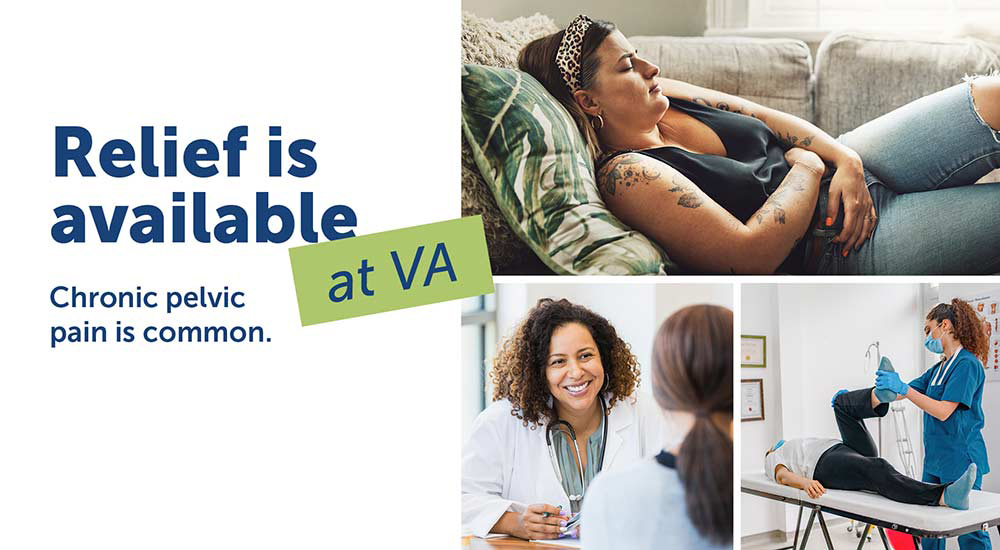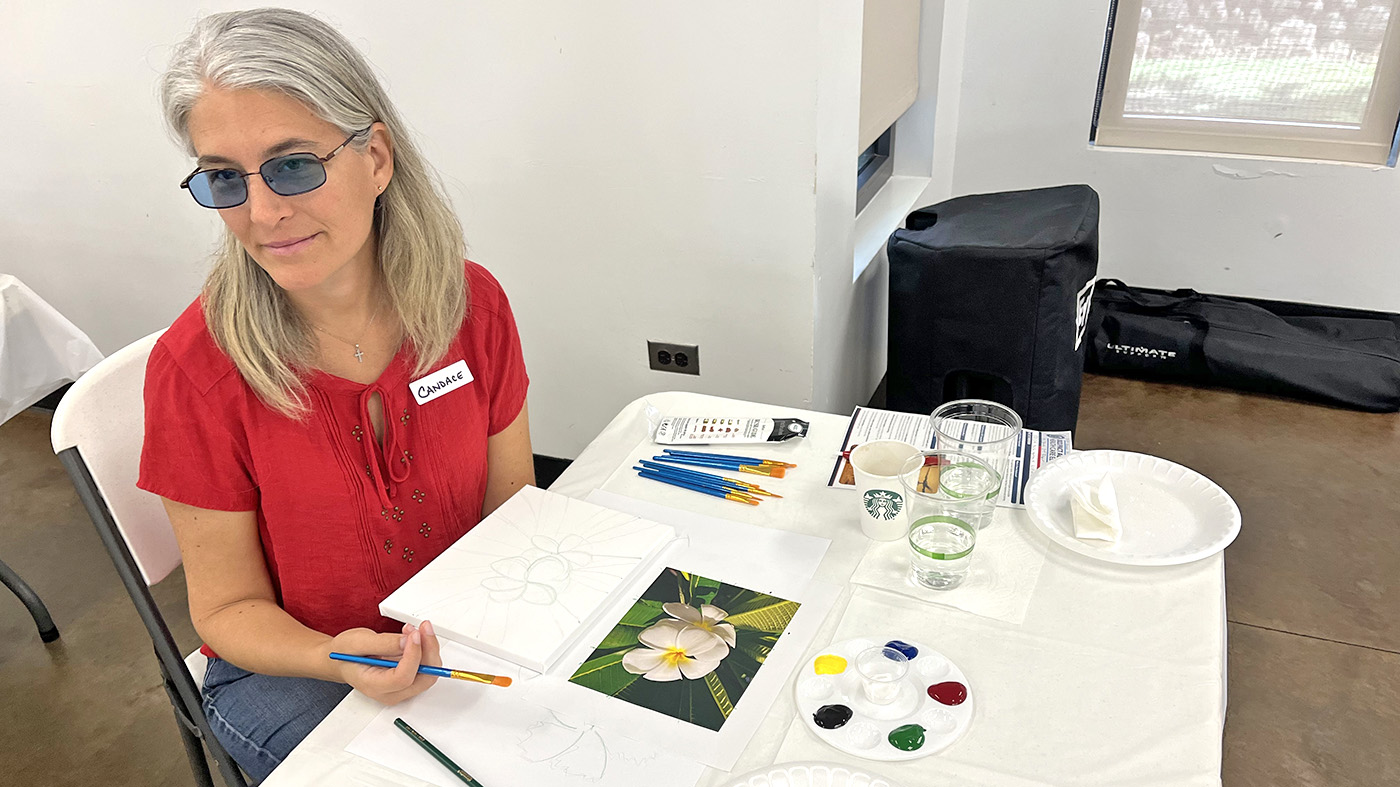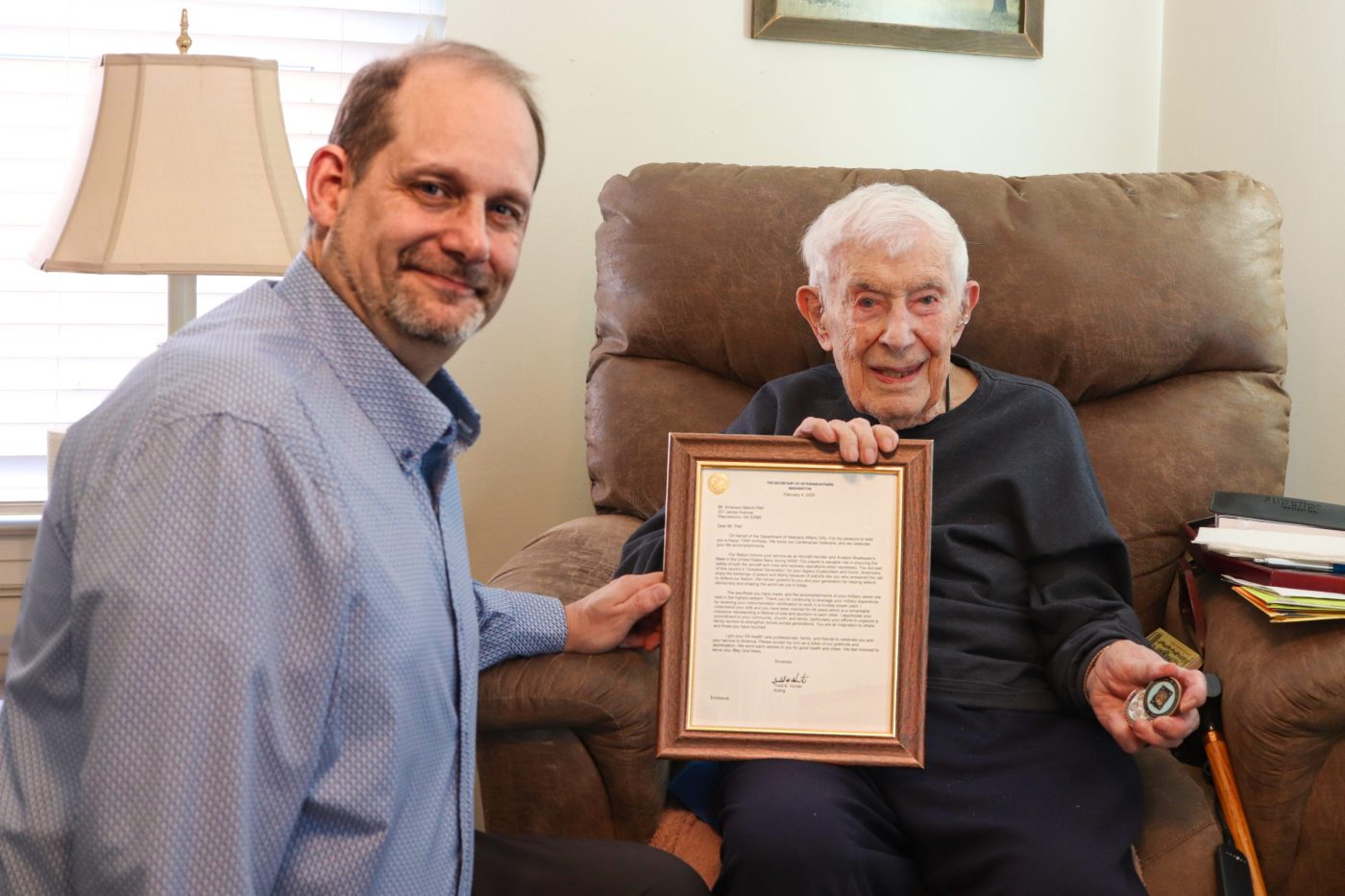Pelvic pain is a problem for many women Veterans. The type and severity of the pain may vary, and the cause of the pain is often unclear.
The pain may be acute (occurs once or every so often), or chronic, causing you to rearrange your life around it. You may think it’s a normal part of life. But it doesn’t have to be.
There is relief for chronic pelvic pain and VA can help you.
What is chronic pelvic pain?
Chronic pelvic pain is when you have pain in your lower abdomen or pelvic area that lasts more than six months. This pain may be consistent but can get worse when you are having your period, urinating, having sex or walking.
It often interferes with your daily activities and affects your quality of life.
Who gets chronic pelvic pain?
About 30% of women Veterans have chronic pelvic pain. Some things that increase the risk of chronic pain include a history of sexual trauma, anxiety, depression or post-traumatic stress disorder (PTSD), multiple surgeries, and certain lifestyle habits, such as smoking and substance abuse.
What causes chronic pelvic pain?
The difficulty in treating this pain is that it can be a result of a number of health conditions. Most women with chronic pelvic pain have more than one cause of their pain. The reasons for the pain can include:
- Irritable bowel syndrome (IBS), a condition that affects the large bowel;
- Bladder conditions, such as interstitial cystitis;
- Pelvic floor dysfunction, when pelvic muscles are weakened;
- Endometriosis, in which cells that usually grow in the uterus grow outside of the uterus;
- Vulvodynia, pain in the genital area;
- Pelvic injury or surgery;
- Cysts on the ovaries.
Learn more about these health conditions.
How can you get relief?
The first step toward relief is to find the causes of your pain. Your VA primary care provider can help identify health conditions related to your pain and develop a comprehensive treatment plan. VA offers ultrasounds, blood work, CT scans and colonoscopies to help diagnose your pain.
In addition, addressing sleep conditions, fatigue, mood disorders and mental health concerns are important to finding relief.
You may need a mix of therapies, such as those below, to find relief:
- Pelvic physical therapy;
- Medications to treat specific conditions, such as IBS, endometriosis, or muscle spasms;
- Surgery to treat gynecologic conditions like endometriosis;
- Pain relief treatments such as electrical nerve stimulation;
- Mental health support and treatment;
- Whole Health practices, such as tai chi, yoga and acupressure have also been shown to help reduce pain. Your health care provider may also offer information on self-management.
Don’t suffer in silence. Talk with your VA health care provider about your pain.
To read more blog posts on women’s health, visit https://news.va.gov/?s=womens+health.
Topics in this story
More Stories
Army Veteran Candace Decker had experienced military sexual trauma while she was active duty and continued to have night terrors.
Army Veteran Clayton Crosley teaches tai chi to fellow Veterans who find relief through the ancient practice.
When asked if he's a hero, 100-year-old WWII Navy Veteran Emerson Pell gave a short, modest response: “I was just a normal guy.”






I read this article with great interest. Strange no mention of gynecologic cancer in the article. It’s a reality often ignored. Many of my support group members are Veterans. Several were referred to the local military medical center for treatment. I served 38+ years and was diagnosed with advanced ovarian cancer six years after I retired. I had pelvic pain, but I had no idea it could be cancer.
I sent several short articles to the VA last September (Gynecologic Cancer Awareness Month). None were published. Suggest you find a gynecologic oncologist (maybe at Walter Reed?) and ask him/her to write something for next September. Just a short article would be great.
Great information and suggestion. I hope they read your message and follow through!
Strange that there are more pelvic pain MDs running around VA then spine or peripheral orthopedics but then again the VA is stopping treatment of male veterans care so I guess it shouldn’t be surprised. At least the ladies including my wife can get some care from VA PMR after waiting a few years.